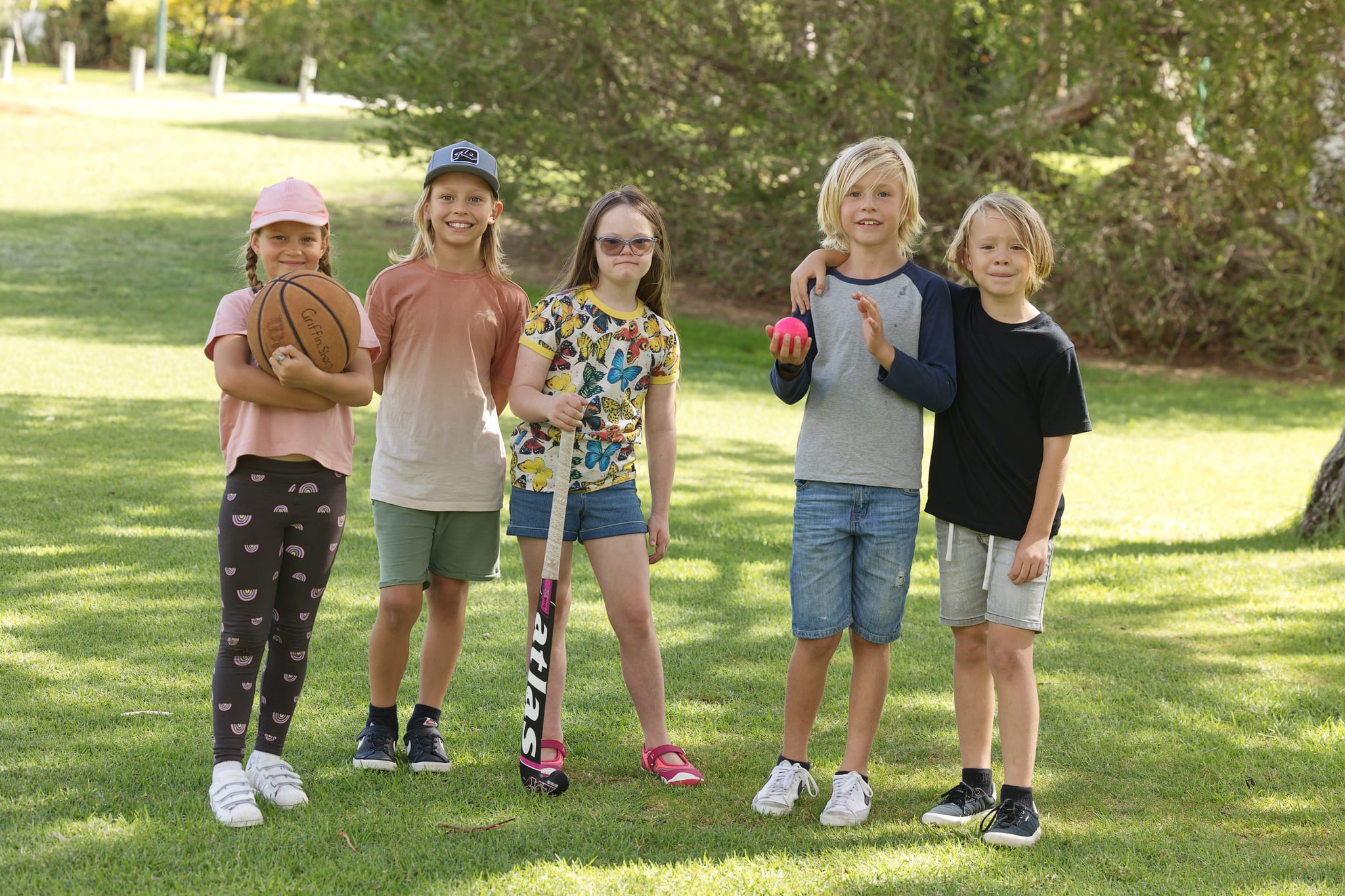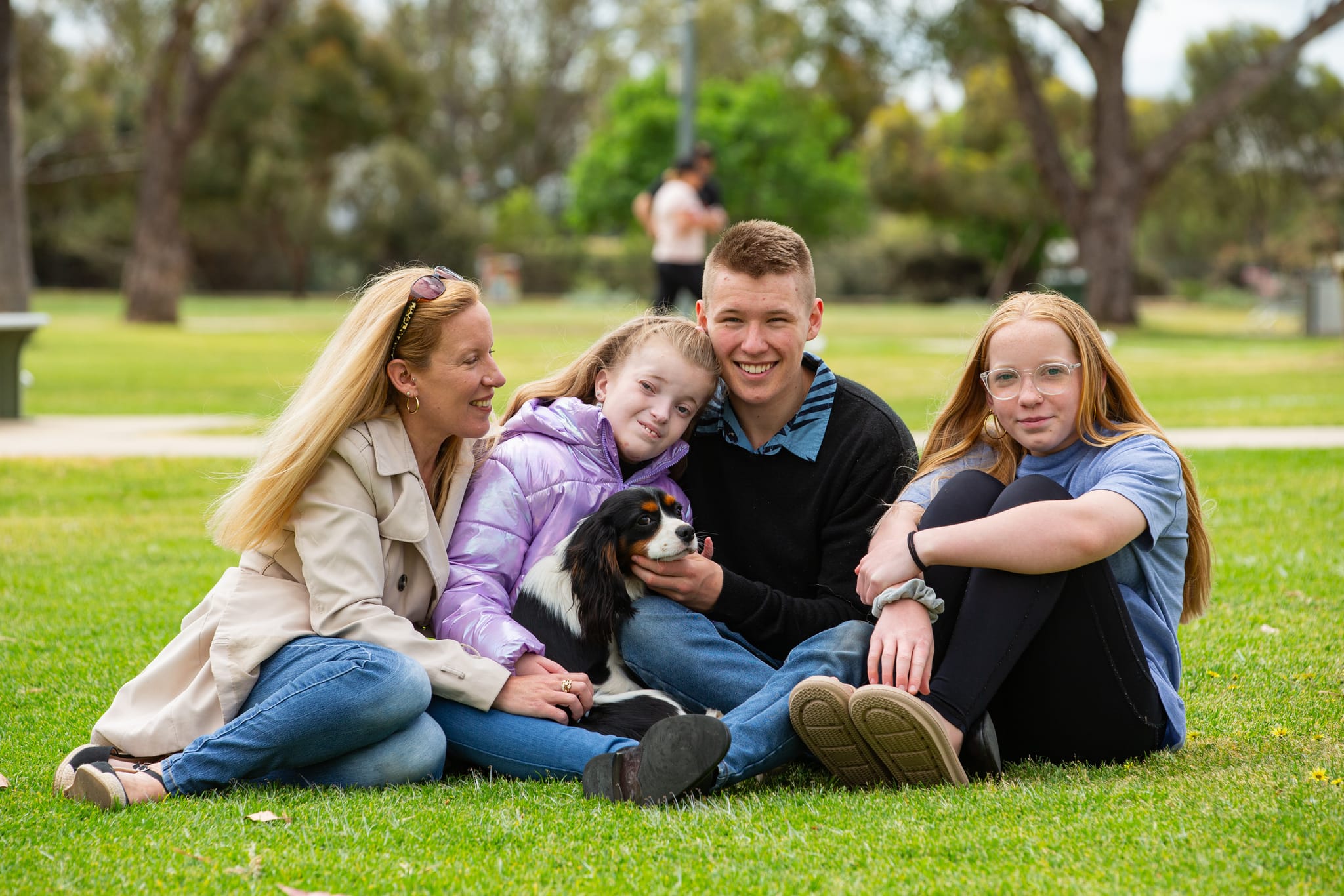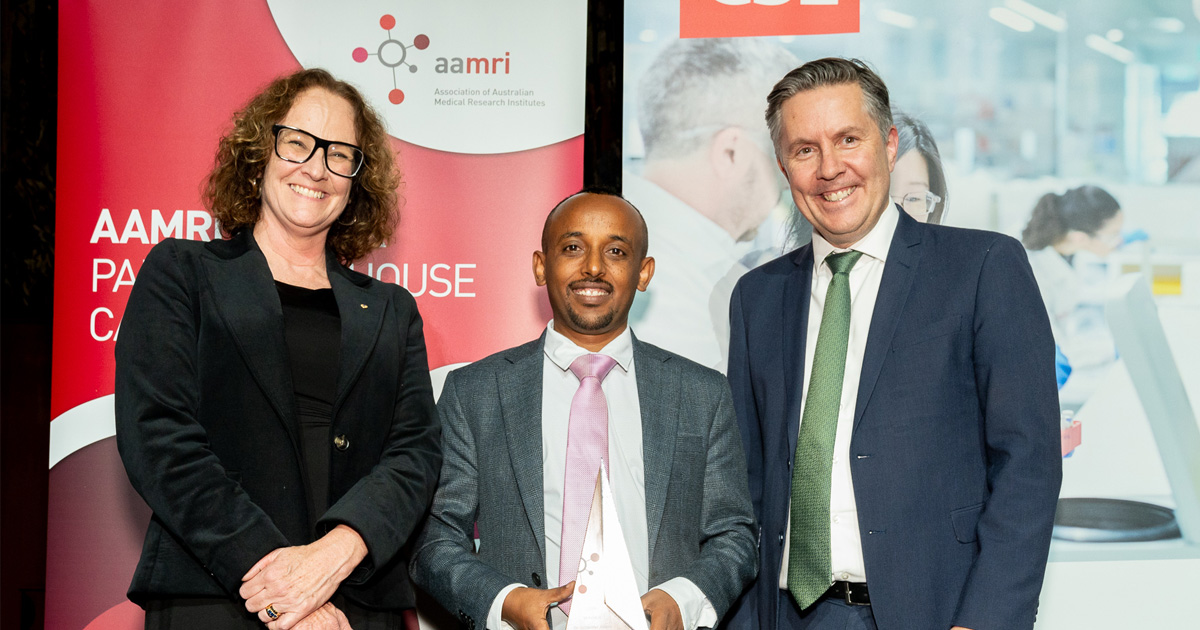Search

News & Events
Researchers share in almost $3 million for groundbreaking child health researchFive researchers from The Kids Research Institute Australia will share in almost $3 million in grants to continue groundbreaking research to tackle childhood cancer, asthma prevention, lung disease and chronic ear infections.
News & Events
Prestigious honour for Indigenous Genomics leaderTrailblazing Aboriginal doctor and health researcher Professor Alex Brown has been made a Fellow of the Australian Academy of Technological Sciences and Engineering (ATSE) in recognition of his leadership in ensuring Indigenous peoples are at the forefront of genomics efforts nationally and internationally.

News & Events
Research breakthrough gives hope to children with rare and undiagnosed diseasesA complex five-year experiment which cracked the code of a genetic mystery has paved the way for faster and more accurate diagnoses of the most rare and unknown diseases affecting children.

News & Events
Projects to probe role of dads and help parents navigate teens’ digital worldA project that will investigate the role of Australian fathers in their children’s wellbeing and another which aims to help parents grapple with the digital world and its role in teens’ mental health have received significant funding from the Australian Research Council.

News & Events
Groundbreaking TB researcher named AAMRI Rising StarDr Kefyalew Alene, who heads the Geospatial and Tuberculosis team at The Kids and is a senior research fellow within the Curtin School of Population Health, has used cutting edge technology to transform the way TB transmission is predicted, understood and managed globally.

News & Events
A call to action: the second Lancet Commission on adolescent health and wellbeingThe health of the world’s 1.96 billion adolescents is at a critical tipping point.

News & Events
The Kids Research Institute Australia leads national review on consumer involvement in health researchThe Kids Research Institute Australia has been awarded a prestigious National Health and Medical Research Council (NHMRC) tender to lead the national review of the revised Draft Statement on Consumer and Community Involvement in Health and Medical Research.

News & Events
The Impact of Poverty - interview with Steve ZubrickGrowing up poor is about more than just the size of your bank account. Read the new CoLab Impact of Poverty Evidence Report.

News & Events
Up and at ’em: The Kids physical activity researcher named a WA Young Tall PoppyA The Kids Research Institute Australia researcher focused on promoting more active childhoods to improve child health and wellbeing will be named amongst WA’s most outstanding young scientists at the upcoming 2020 Young Tall Poppy Science Awards.

News & Events
Funding boost for digital health programThe Kids Research Institute Australia is pleased to share in $490,000 in State Government funding designed to provide vital support to WA’s innovation sector in the wake of COVID-19.
